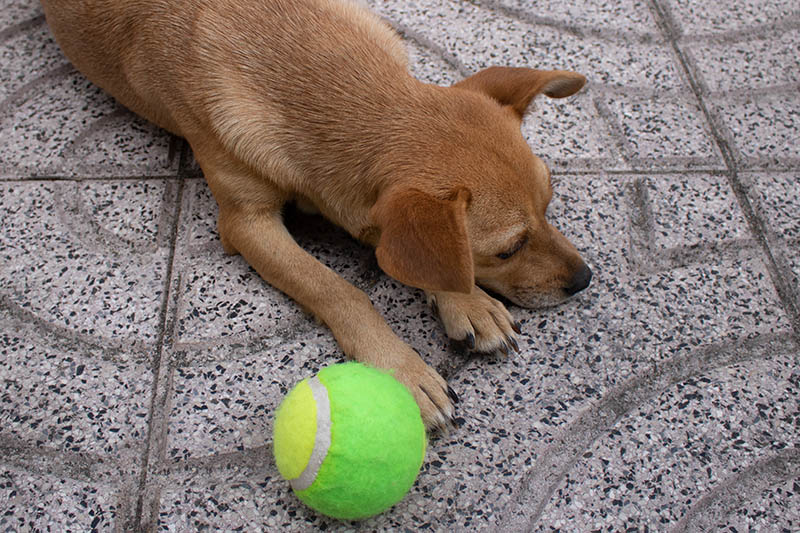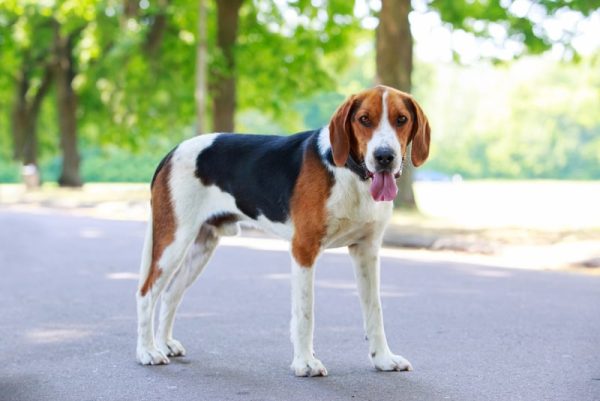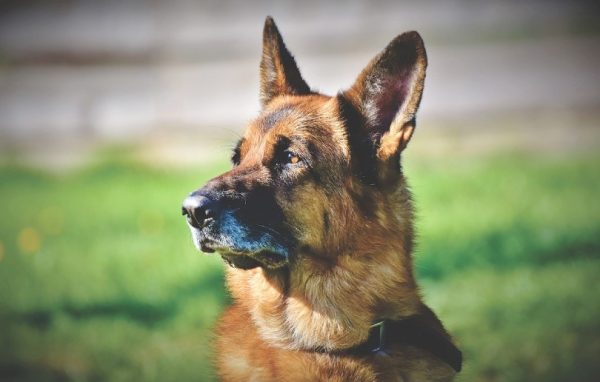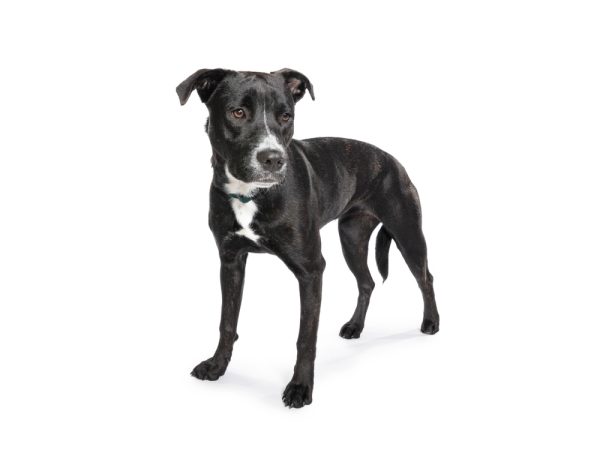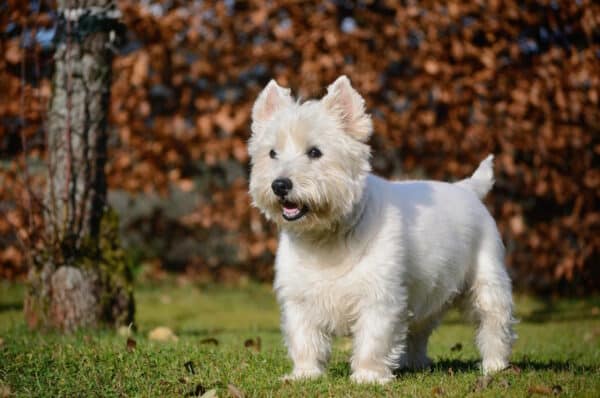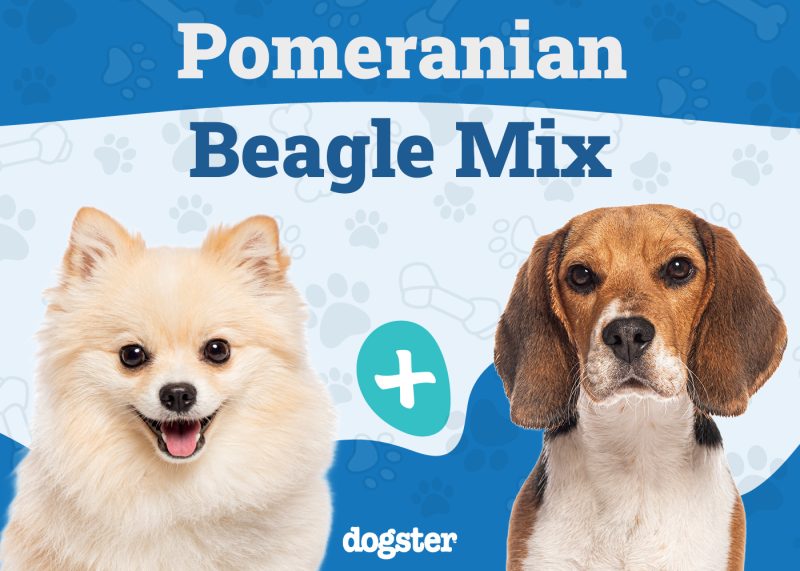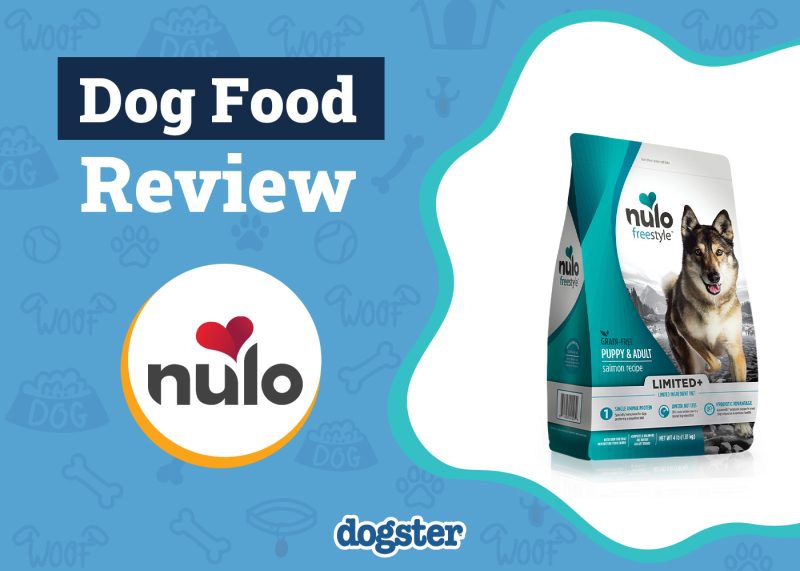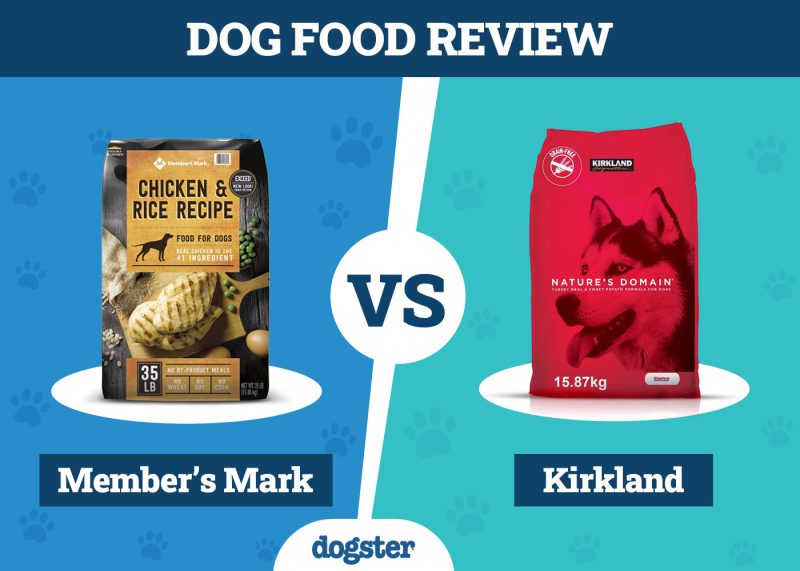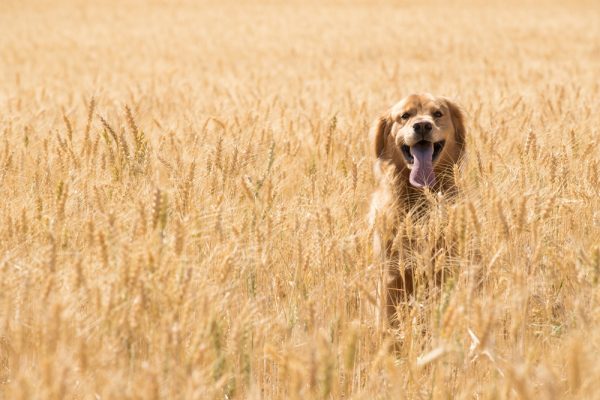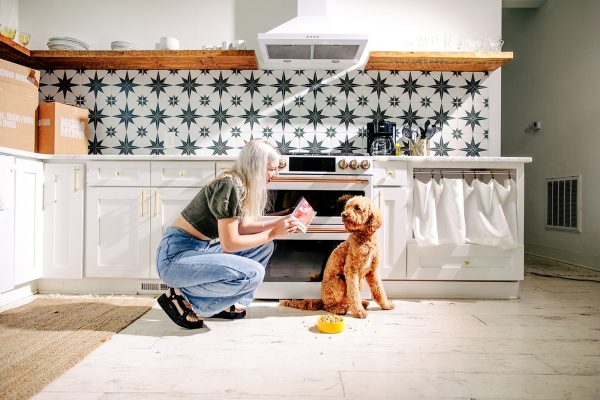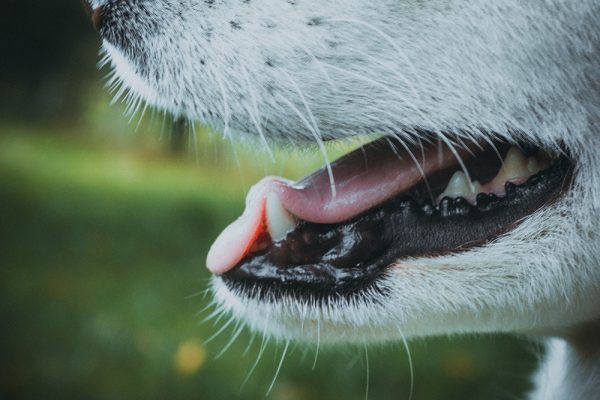In this article
You may feel a bit envious when you look out your window and see your neighbor playing fetch with their dog. Nothing is as fun and exciting as interacting in a playful manner and bonding with your dog. But what if your dog doesn’t like to play with toys?
Here are six reasons your dog may not like toys and what to do about it.

The 6 Reasons Why Your Dog Doesn’t Like Toys
1. The Toys May Not Be the Right Ones
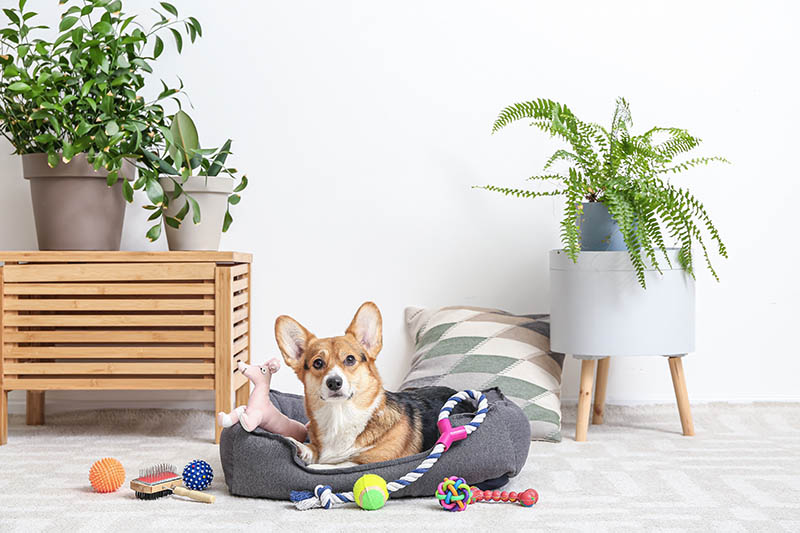
Not all dogs have the same personality, so they won’t like the same toys. There are dogs that love to play fetch and others that prefer chewing toys that squeak or make crinkling noises. One favorite amongst many dogs is to rough house and play tug-of-war.
Finding a toy that piques your dog’s interest may take some experimenting. Try several types, and hopefully, you will find one to the dog’s liking.
2. Your Dog Needs Variety
As the saying goes, “Variety is the spice of life.” That applies to dogs, too. If your dog is given the same toy repeatedly, it will get bored. When excitement and curiosity diminish, so does the interest.
Have a few toys on hand so you can change them up regularly. Like kids, when they haven’t seen a toy for a while, it becomes new again.
3. Improper Socialization
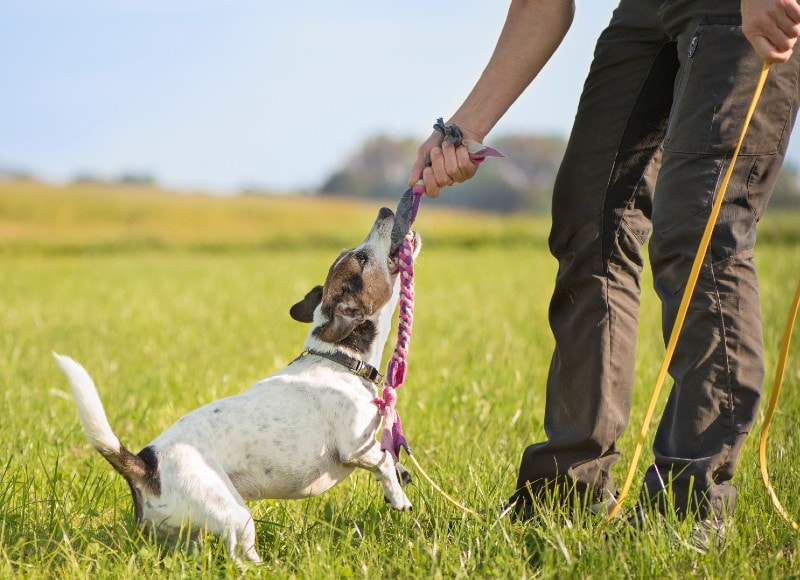
Dogs are like kids—they need other dogs to play with. While dogs love to play with their humans, they need to have dog play, too. We can play fetch and tug-of-war, but wrestling, biting, and running with another canine is essential for dogs to connect and be socialized.
Doggie playtime is like kids playing with kids. They love getting attention from their parents, but the silly playtime with their friends helps them connect with other children on the same level. Otherwise, they can become socially awkward.
4. The Dog Has No Clue How to Play
Some dogs just do not know how to play. Whether you have a new puppy, a shelter dog, or an abused canine, you may need to teach the dog how to play. Toys are just inanimate objects on the floor until the dog understands what to do with them. So, get on the floor and play hide and seek with the toy, make it squeak, or go in the yard and play fetch. One of the things that makes a toy most fun is the interaction with another dog or a human.
5. Past Trauma or Anxiety

If you have a dog that was from a shelter or rescue, there is a good chance it may have experienced some past trauma associated with toys. The dog may have accidentally scratched or bitten its owner and got punished for the behavior. This could lead to a negative association with toys. This negative association or the squeaky sound from some toys may provoke anxiety in your dog.
6. Health Issues
If your dog is not interested in playing with toys, there may be health issues like arthritis, periodontal disease, hip dysplasia, or pain and discomfort from age. If your dog suddenly is disinterested in playing with toys, you may want to take it for a checkup to rule out any medical issues that are affecting its desire to play. If the dog is getting older, it can also be due to plain old age or canine cognitive dysfunction (CCD).
If your dog shows signs of the symptoms above or you suspect they might be suffering from underlying health issues, you should contact your vet.
If you need to speak with a vet but can't get to one, head over to PangoVet. It's our online service where you can talk to a vet online and get the advice you need for your pet — all at an affordable price!


Factors to Consider When Buying Toys for Your Dog
There are a number of things to consider when buying toys for your pup. Not all dogs will enjoy the same type of toy or play. You will also need to be sure to have a large variety to keep them interested and happy. Remember, toys are interactive, so you need to engage with them to keep it fun and stimulating for the dog.
Toy Factors
- Texture
- Smell
- Material
- Size
- Durability
- Price
- Color
- Taste
- Price
- Cruelty-free certification
Dog Factors
- Dog’s breed
- Dog’s personality
- Dog’s preferences
- Dog’s temperament
- Dog’s energy level and style of play
- Where will the dog play with the toy?
- What type of weather will it be playing in?
- Dog’s health
- Dog’s age
Teaching Your Dog to Like Toys
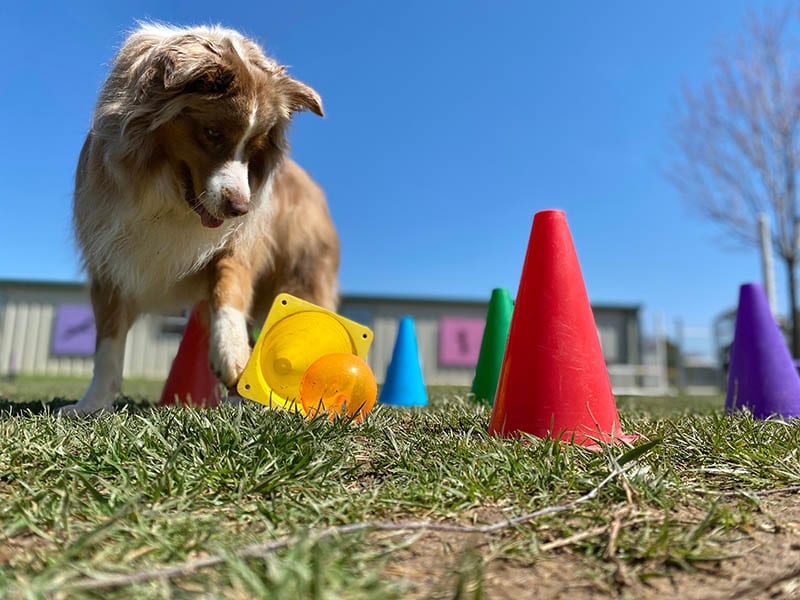
Getting your dog to love or at least like its toys can help to create good chewing habits. To prevent negative behaviors like chewing the furniture, rugs, and shoes, teach your dog good chewing habits with fillable treats or puzzle toys.
Teaching appropriate chewing habits helps the dog learn good behaviors and prevents unnecessary frustration for the pet owner. Giving them a toy that motivates and reinforces good behavior will prevent them from seeing your shoes as just another chew toy.
Don’t just buy a toy and give it to the dog. Throw the toy, shake the toy, or interact with the dog and the new toy. This is your opportunity to bond and spend quality time with your dog and teach it at the same time.
If your dog is still not interested, rub it on your body, the grass, or food to encourage the dog to play with the toy.
Toy Safety
As pet owners, it is our responsibility to keep our dogs safe and healthy. Some toys may be appropriate for playing without supervision, and some are not. For instance, your dog should not be left alone with puzzle toys that have removable parts. To keep your pup safe from toy hazards, here are some things to consider.
Dental Health
Although there are chew toys that are beneficial to your dogs’ teeth, they can also cause damage to their teeth. Plastic toys, nylon bones, and toys that are made of hard materials can also damage their gums, tongue, or teeth. This is especially true for senior dogs, puppies, or dogs with poor dental health.
Stick to soft toys or dental chews if you have concerns about toys that may be too hard for your dog.
Choking
It is extremely important to be sure to purchase the proper toy for your dog. The incorrect size and type of toy can pose a choking risk for any dog.
If you give your dog a toy that is too small and can fit in its mouth, it can pose a risk. Dogs that have strong jaws and can easily break off pieces of a toy should be supervised to ensure enjoyable and safe play with their toy.
Cleanliness
Dog toys are susceptible to so many germs. They get covered with everything from dog drool (from your dog and others) to mud. Imagine the slew of pathogenic microorganisms that can get brought into your house. To prevent the spread of bacteria, replace toys that are damaged and too dirty to clean. Otherwise, clean the toys when playtime is over.

Final Thoughts
If you are one of those pet parents that desperately want their dog to like toys, teach your dog to play and give them the motivation they need. Whether they get rewarded with treats, playtime with another animal, or attention from their human, associating the toys with positive things will encourage them to learn to play and even like their toys. It can also teach them positive chewing behaviors so your belongings do not get destroyed.
Featured Image Credit: Marta Nogueira, Shutterstock
